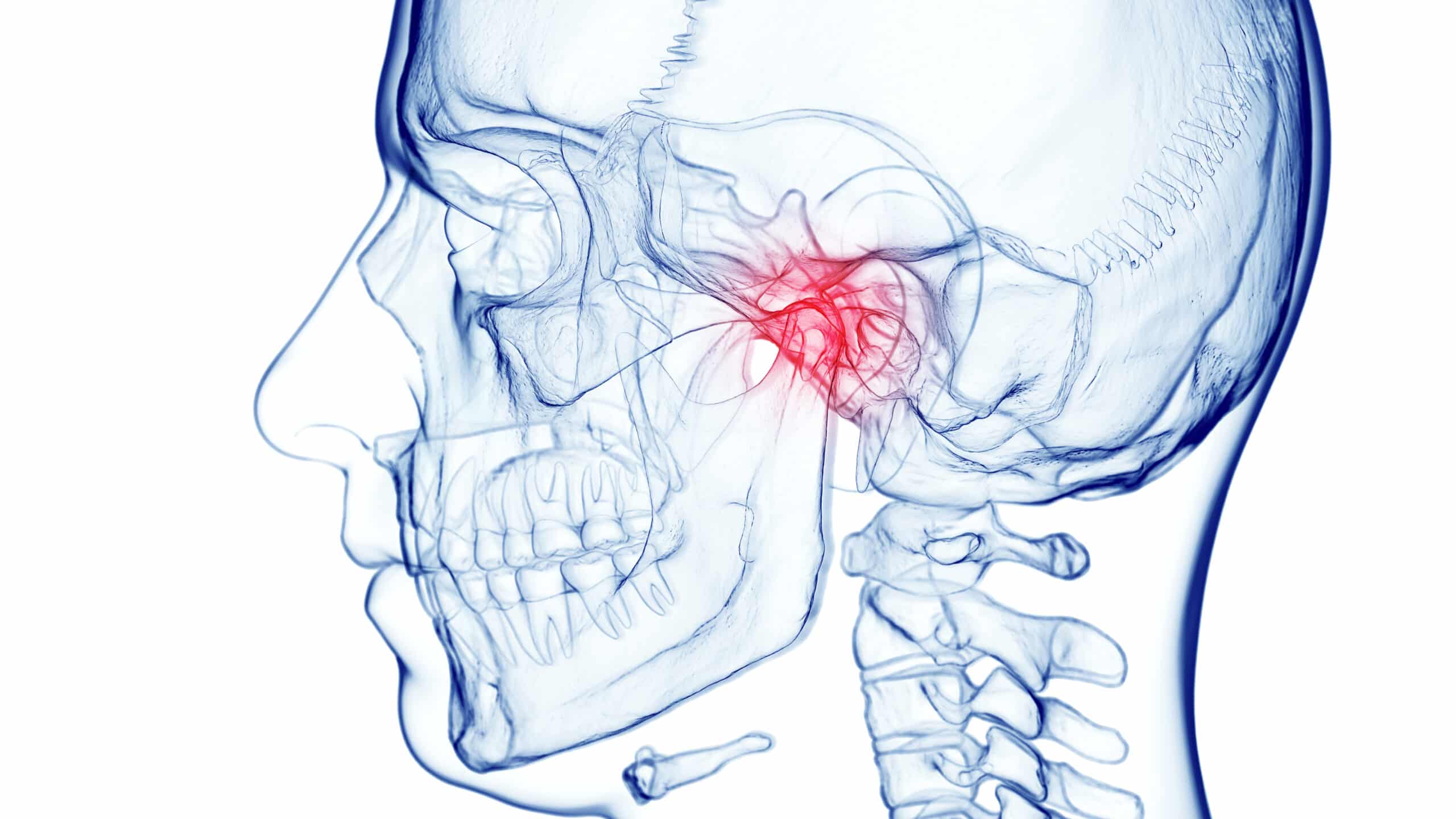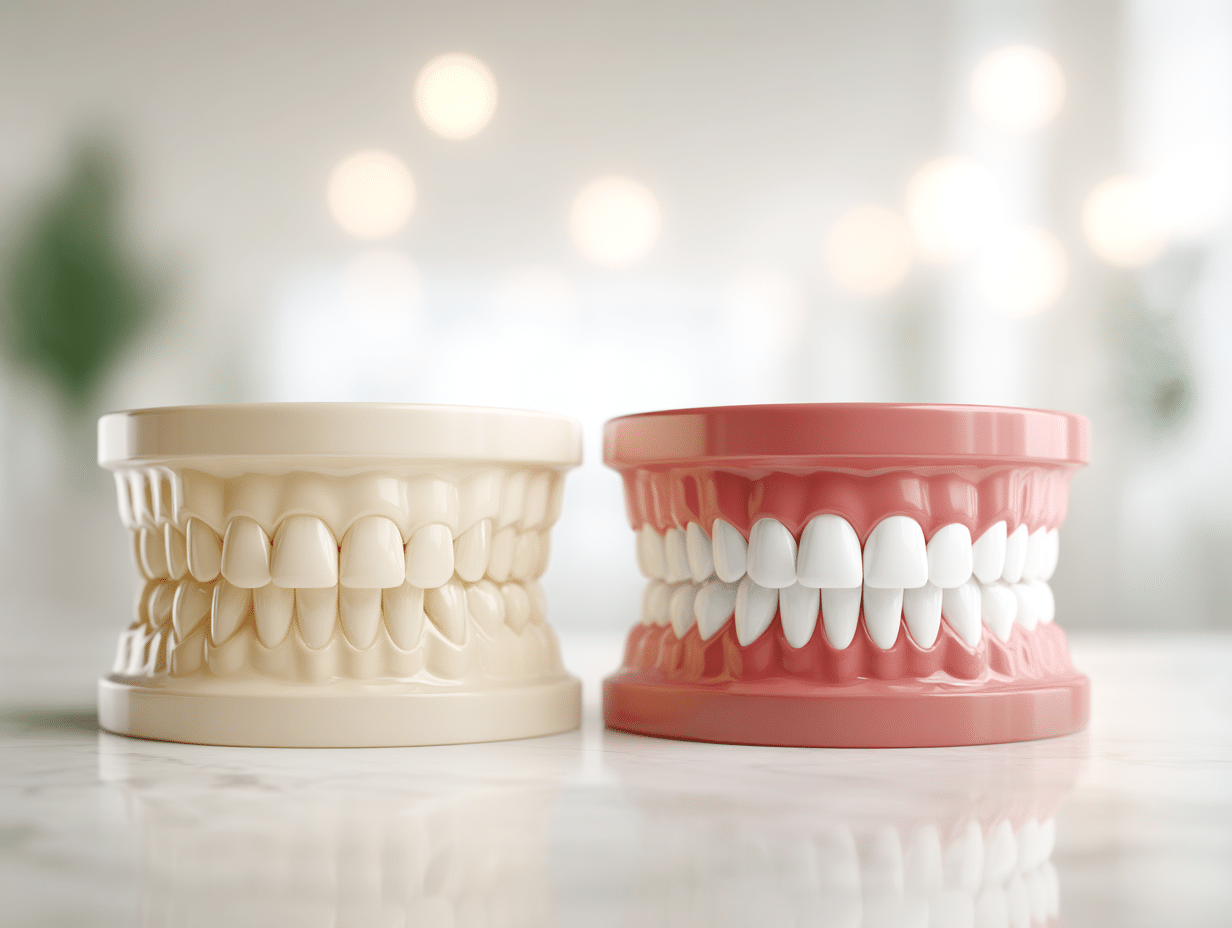Those who are experiencing mouth issues like teeth clenching may hear terms like Bruxism and TMJ and wonder if they are the same thing. They are related disorders but aren’t the same thing.
Bruxism is the condition where you clench or grind your teeth. TMJ disorder is a jaw disorder where your jaw doesn’t move correctly and moving causes issues like pain and “lockjaw” where you have trouble closing your mouth after you open it.
Related Disorders
One of the reasons the two disorders get people confused is they are related in the sense that Bruxism can lead to TMJ. Clenching or grinding your teeth is a primary cause of TMJ and treating Bruxism can resolve TMJ pain.
The two differ in other ways. They have both similar and different symptoms and can be treated separately.
Cause of Bruxism
No one knows what causes Bruxism. Scientists speculate that some of it relates to a genetic component. It’s good to know if the family has a history of Bruxism to understand if you can be affected by it.
Another possible cause is medications. Antidepressants are one of the types of medicines that are linked to teeth grinding. People with particular medical conditions are also prone to this disorder including those with GERD, ADHD, Parkinson’s, and sleep disorders.
Some children have teeth-grinding issues. This is generally first noticed by dentists as most grind their teeth in their sleep without realizing it. Young children are more prone to the habit but they usually grow out of it. Keep your eye on them and talk to the dentist about it if you are concerned.
Bruxism Symptoms
There is a list of symptoms to identify Bruxism. Some symptoms include disrupted sleep, chipped or fractured teeth, headaches with temple pain, earaches without having an ear infection, worn down tooth enamel, sensitive teeth, and jaw tiredness.
TMJ Bruxism and TMJ
TMJ is when you have pain in your jaw or difficulty opening and closing your mouth because of your jaw. Your jaw can get stuck in the open position and you may have trouble sleeping.
Some of the same symptoms for Bruxism are also symptoms of TMJ. You can have headaches, toothaches, and earaches with TMJ. You can also have sensitive teeth or pain in your teeth with both disorders.
Your jaw can feel tired. One distinct symptom of TMJ is clicking sounds that happen when you open or close your mouth. You may also feel pain beyond what you feel with Bruxism with soreness in your neck and upper shoulders.
There could also be an ache in your face and some pain when chewing. A common ailment of TMJ is that it’s hard to fully close your mouth.
Finding Relief
Many of the same efforts to find relief can be done for either disorder. This can include using a customized night guard to soften the contact if you grind your teeth at night. It also could include medication and mouth exercises that relax your jaw muscles.
Relaxation techniques may also help with Bruxism. Stress can be a contributing factor in teeth grinding. Learning relaxation techniques can help you deal with stress and end possibly end teeth grinding.
We can help diagnose and treat both of these conditions. Book an appointment with one of our dentists to get an exam and find out if either or both of these conditions are affecting your mouth and jaw. We can offer advice on how to handle Bruxism and TMJ and help you find the relief you need. Make an appointment today!




